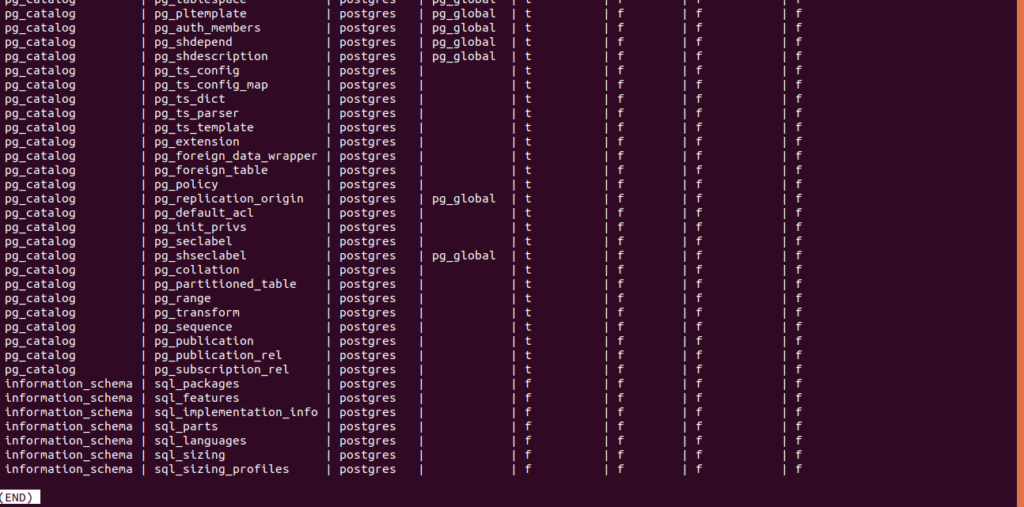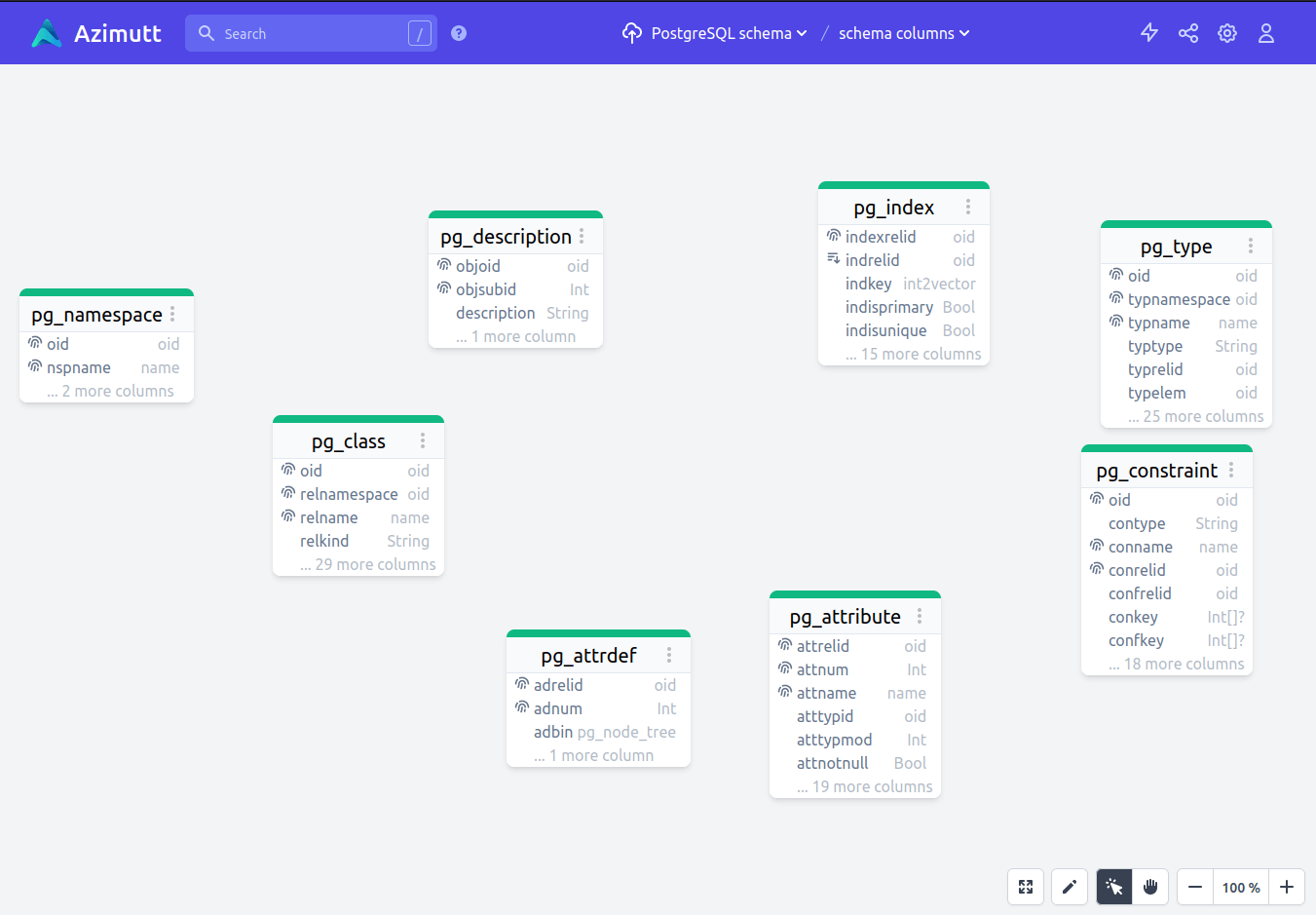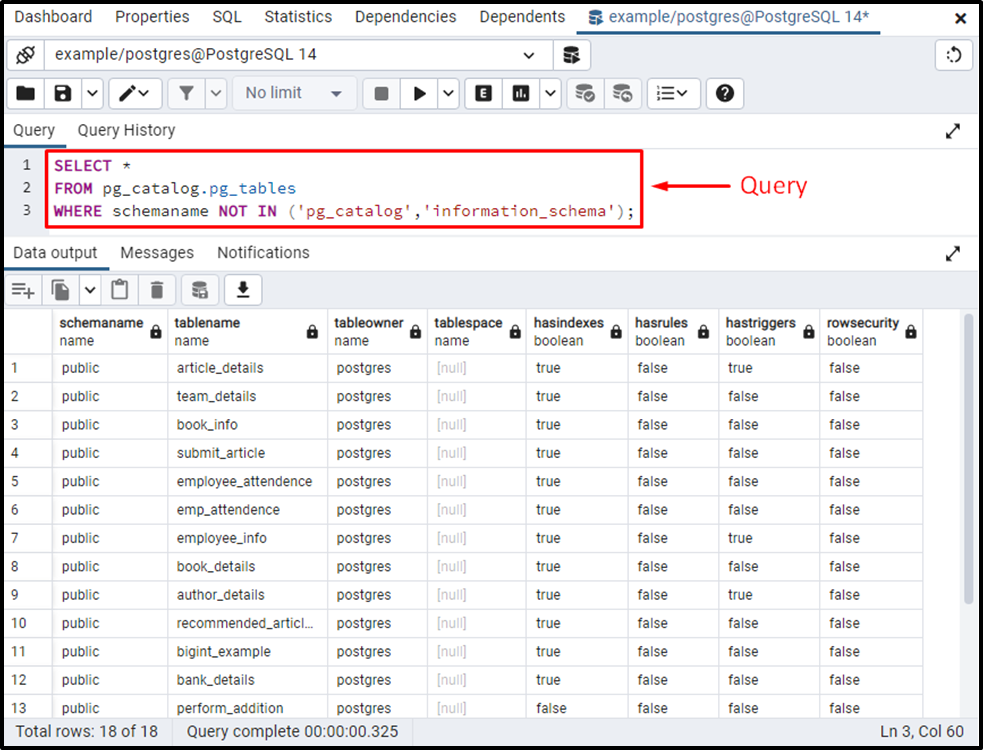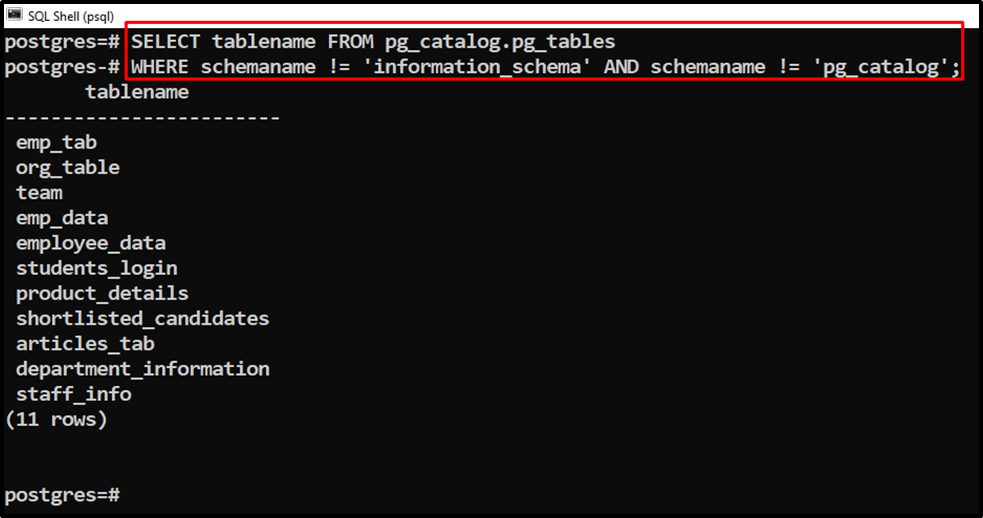Pg_Catalog
Pg_Catalog - The relationships between pg_am, pg_amop, pg_amproc, pg_operator and pg_opclass are particularly hard to understand and will be described in depth (in the section on interfacing types and operators to indexes) after we have discussed basic extensions. Views in the information_schema are based on those. It is a default schema that is automatically included in every postgresql. In postgres, metadata about the tables, functions and other schema elements are exposed via the system catalogs, accessed through the. From tracking database objects to monitoring current activity to inspecting. All system catalogs have names that begin with pg_. See the list of catalogs, their names, purposes, and links to. The true source of information in postgres are the catalog tables in pg_catalog. Most system catalogs are copied from the template database during database creation and. For postgresql compatibility, cockroachdb includes a system catalog called pg_catalog. As such the table definitions are registered in. The tables in the pg_catalog schema roughly correspond to the system catalogs in postgresql. If you're writing an application that depends on information stored in the system tables, use an existing catalog view or create a catalog view to isolate the application from. The following tables contain information that may be useful to the end user. In postgres, metadata about the tables, functions and other schema elements are exposed via the system catalogs, accessed through the. It is a default schema that is automatically included in every postgresql. Learn about the system catalogs that store metadata and configuration information for postgresql databases. From tracking database objects to monitoring current activity to inspecting. Access methods, see oracle metadata. All system catalogs have names that begin with pg_. Learn about the system catalogs that store metadata and configuration information for postgresql databases. Most system catalogs are copied from the template database during database creation and. Table 51.1 lists the system catalogs. For postgresql compatibility, cockroachdb includes a system catalog called pg_catalog. As such the table definitions are registered in. In postgres, metadata about the tables, functions and other schema elements are exposed via the system catalogs, accessed through the. The relationships between pg_am, pg_amop, pg_amproc, pg_operator and pg_opclass are particularly hard to understand and will be described in depth (in the section on interfacing types and operators to indexes) after we have discussed basic extensions. Most system catalogs are. What is the pg_catalog schema? Ranges, indexes, users, and user groups are stored. As such the table definitions are registered in. In this guide, we‘ve explored some of the most useful objects within the pg_catalog schema. Other aspects of the sql standard. The system catalogs are the place where a relational database management system stores schema metadata, such as information about tables and columns, and internal bookkeeping. Ranges, indexes, users, and user groups are stored. Access methods, see oracle metadata. Most system catalogs are copied from the template database during database creation and. The following tables contain information that may be useful. See the list of catalogs, their names, purposes, and links to. Views in the information_schema are based on those. In this guide, we‘ve explored some of the most useful objects within the pg_catalog schema. Most system catalogs are copied from the template database during database creation and. From tracking database objects to monitoring current activity to inspecting. From tracking database objects to monitoring current activity to inspecting. In this guide, we‘ve explored some of the most useful objects within the pg_catalog schema. (there are many other system catalogs, but there should rarely. Ranges, indexes, users, and user groups are stored. In postgres, metadata about the tables, functions and other schema elements are exposed via the system catalogs,. The system catalogs are the place where a relational database management system stores schema metadata, such as information about tables and columns, and internal bookkeeping. The following tables contain information that may be useful to the end user. In postgres, metadata about the tables, functions and other schema elements are exposed via the system catalogs, accessed through the. Learn about. The following tables contain information that may be useful to the end user. The true source of information in postgres are the catalog tables in pg_catalog. For postgresql compatibility, cockroachdb includes a system catalog called pg_catalog. Learn about the system catalogs that store metadata and configuration information for postgresql databases. If you're writing an application that depends on information stored. Ranges, indexes, users, and user groups are stored. In postgres, metadata about the tables, functions and other schema elements are exposed via the system catalogs, accessed through the. From tracking database objects to monitoring current activity to inspecting. Views in the information_schema are based on those. The tables in the pg_catalog schema roughly correspond to the system catalogs in postgresql. (there are many other system catalogs, but there should rarely. What are the catalog and the information schema ? In this guide, we‘ve explored some of the most useful objects within the pg_catalog schema. It is a default schema that is automatically included in every postgresql. Table 51.1 lists the system catalogs. From tracking database objects to monitoring current activity to inspecting. Table 51.1 lists the system catalogs. In this guide, we‘ve explored some of the most useful objects within the pg_catalog schema. All system catalogs have names that begin with pg_. The following tables contain information that may be useful to the end user. If you're writing an application that depends on information stored in the system tables, use an existing catalog view or create a catalog view to isolate the application from. It is a default schema that is automatically included in every postgresql. As such the table definitions are registered in. What is the pg_catalog schema? The tables in the pg_catalog schema roughly correspond to the system catalogs in postgresql. In postgres, metadata about the tables, functions and other schema elements are exposed via the system catalogs, accessed through the. Access methods, see oracle metadata. Ranges, indexes, users, and user groups are stored. Other aspects of the sql standard. The relationships between pg_am, pg_amop, pg_amproc, pg_operator and pg_opclass are particularly hard to understand and will be described in depth (in the section on interfacing types and operators to indexes) after we have discussed basic extensions. More detailed documentation of each catalog follows below.About the PostgreSQL System Catalogs
Listing out Tables in PostgreSQL Using psql, SELECT Query EDUCBA
Documenting relationships in the pg_catalog schema
Tutorial 36PostgreSQL system catalogs schema (System information
Explore PostgreSQL internals with SQL to extract a database schema
How to Show Tables in PostgreSQL? CommandPrompt Inc.
Meu Blog de PostgreSQL!!! Faça Você Mesmo Diagramas de Classe com as
PostgreSQL List Users, Databases, Schemas, Tables CommandPrompt Inc.
How to Get Metadata from PostgreSQL System Catalogs CoderPad
Postgresql system Catalog 中的系统表能告诉你什么 (一)?腾讯云开发者社区腾讯云
What Are The Catalog And The Information Schema ?
See The List Of Catalogs, Their Names, Purposes, And Links To.
The System Catalogs Are The Place Where A Relational Database Management System Stores Schema Metadata, Such As Information About Tables And Columns, And Internal Bookkeeping.
Learn About The System Catalogs That Store Metadata And Configuration Information For Postgresql Databases.
Related Post:









